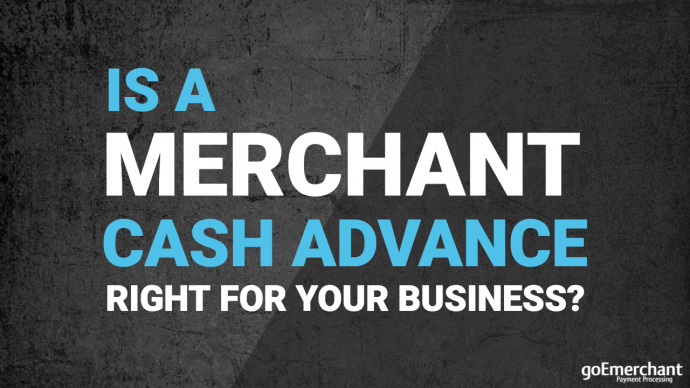Every entrepreneur has probably seen an ad for an alternative lender offering merchant cash advances in as little as 24 hours so you may be wondering if your business could benefit from it. The answer is… maybe. Merchant cash advances, or MCAs, are a viable funding option for many businesses, but they carry significant drawbacks that must be considered before you get one.
What Is An MCA?
An MCA is a lump sum provided by a lender to a business in exchange for an agreed-upon percentage of the business’s future credit or debit card-based revenues. The lender’s share of each transaction is variable, ranging anywhere from 10% to 35% on average. Payments continue for a set term (usually less than two years) or until the initial sum plus interest is paid off. The term is sometimes used to describe more traditional short-term business loans as well, but this article focuses on the definition above.
Payments are generally processed through one of three methods. The most common is Credit Card Splits, in which your payment processor will automatically split every transaction according to the terms of your MCA. This method usually requires switching to a payment processor your lender has a relationship with, but offers the advantage of everyone getting their money quickly and efficiently.
Alternatively, you could use ACH Withholding. ACH stands for Automated Clearing House and entails sharing bank account information with your lender so that they may manually withdraw their daily share, according to your MCA agreement. Some banks offer limited access upon request if you are concerned about security, but not all of them do.
Finally, you could use a Lockbox. This option gives you the freedom to use any payment processor you wish, but they’ll deposit credit card-based revenues into a third party bank account instead of your own. The lender takes their share out of the Lockbox account, and then the rest is forwarded to your company’s account. The extra step makes payment processing much slower than it usually is, making this the least-favored option.
Any individual company may not offer all three options above, while a customer may not qualify for all three even if their lender offers them all. There may also be an added fee for some of the above options.
Advantages Of MCAs
Most alternative lenders approve or deny funding based on your business’s credit card receivables, not your personal credit score. This allows businesses to get financing when they couldn’t from a traditional bank. MCAs are also processed in two days or less, making them the quickest way to secure financing if time is of the essence. Finally, smaller daily payments linked to how much revenue you earned that day can make it easier to manage your cash flow than a larger monthly payment.
There are typically no restrictions on how you use an MCA, giving you the freedom to purchase inventory, expand, or merely keep the doors open as needed. Some alternative lenders market themselves as your partner rather than a lender, adding expertise related to your specific field to the list of services they offer. Having somebody else to bounce ideas off of can be a valuable thing, but some lenders will only give you a salesman trying to sell you on an MCA. This could be a benefit or a drawback depending on the company you choose.
Disadvantages Of MCAs
MCAs are technically not loans but the purchase of future receivables, giving lenders the leeway to charge any interest rate they want regardless of any applicable usury laws. Therefore, it is not uncommon to pay back $25,000 or more on an MCA of $20,000. You are also forbidden from taking out another MCA until the previous one is paid off, potentially limiting your financial flexibility.
The MCA approval process is based on credit card receivables, potentially hurting businesses that accept cash or check more often than not. Some entrepreneurs may not wish to change payment processors, share their banking information, or wait 3-4 days to get their revenues out of a Lockbox either.
Conclusion
As a business owner, it is important that you resist letting emotions control these types of decisions. Only you can know if your business has enough credit card commerce and stability to make a merchant cash advance a good option.
MCAs are typically especially helpful for businesses whose income is on the upswing and who need a short-term infusion of funds to ensure that the growth can continue. The bottom line is that merchant cash advance loans can be a very quick and uncomplicated way to get the cash you need.
Just make sure before you sign on any dotted lines that you are totally comfortable with all of the terms of the loan. Hopefully, now that you have a basic idea of what a merchant cash advance is. Ultimately, only you can decide for yourself if it is worth it for your business or not.




